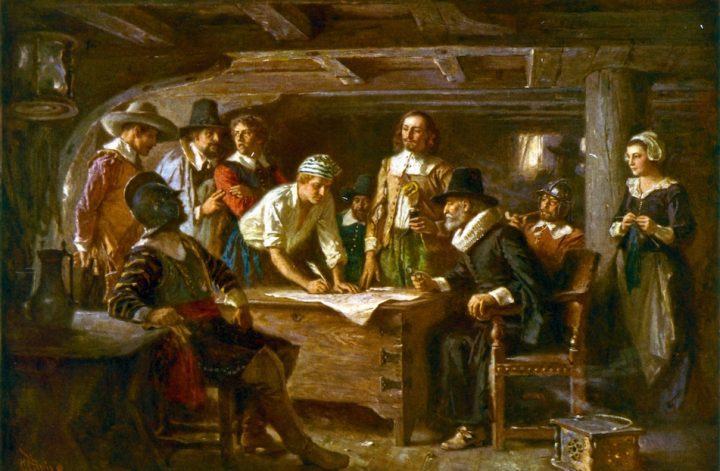The Mayflower Compact, the first governing document of Plymouth Colony, established the American tradition of self-government freely agreed among those governed. While not a full-fledged constitution, it established a framework for a civil body politic–a self-governing community. It is considered a milestone in American democracy.
- Social Contract: The Compact represented an agreement among the Pilgrims to form a government and abide by its laws.This concept of a social contract, where individuals agree to be governed for the common good, is a foundational principle of democratic societies.
- Self-Governance: The Pilgrims, rather than relying solely on English authority, took the initiative to create their own rules and regulations.This demonstrated a belief in the capacity of the people to govern themselves, a core idea of democracy.
- Rule of Law: The Compact emphasized the importance of laws and the idea that everyone, including those in power, should be subject to the rule of law.This principle is essential for maintaining a just and equitable society.
The Mayflower Compact was signed aboard ship on 21 November 1620. One year later, a much reduced colony hosted a harvest celebration remembered today as the “First Thanksgiving”. Among the signatories were Edward Fuller (1575-1620/21) and Richard Warren (1583-1628), apparently my 11th great-grandfathers.
Within the document stands the groundwork for the future of the democratic tradition in the American colonies. It demonstrated the desire for self-governance and the belief int he power of the people to shape their own destiny within a defined rule of law. That’s something our present leadership in Washington, DC, may want to brush up in their daily reading.
.

